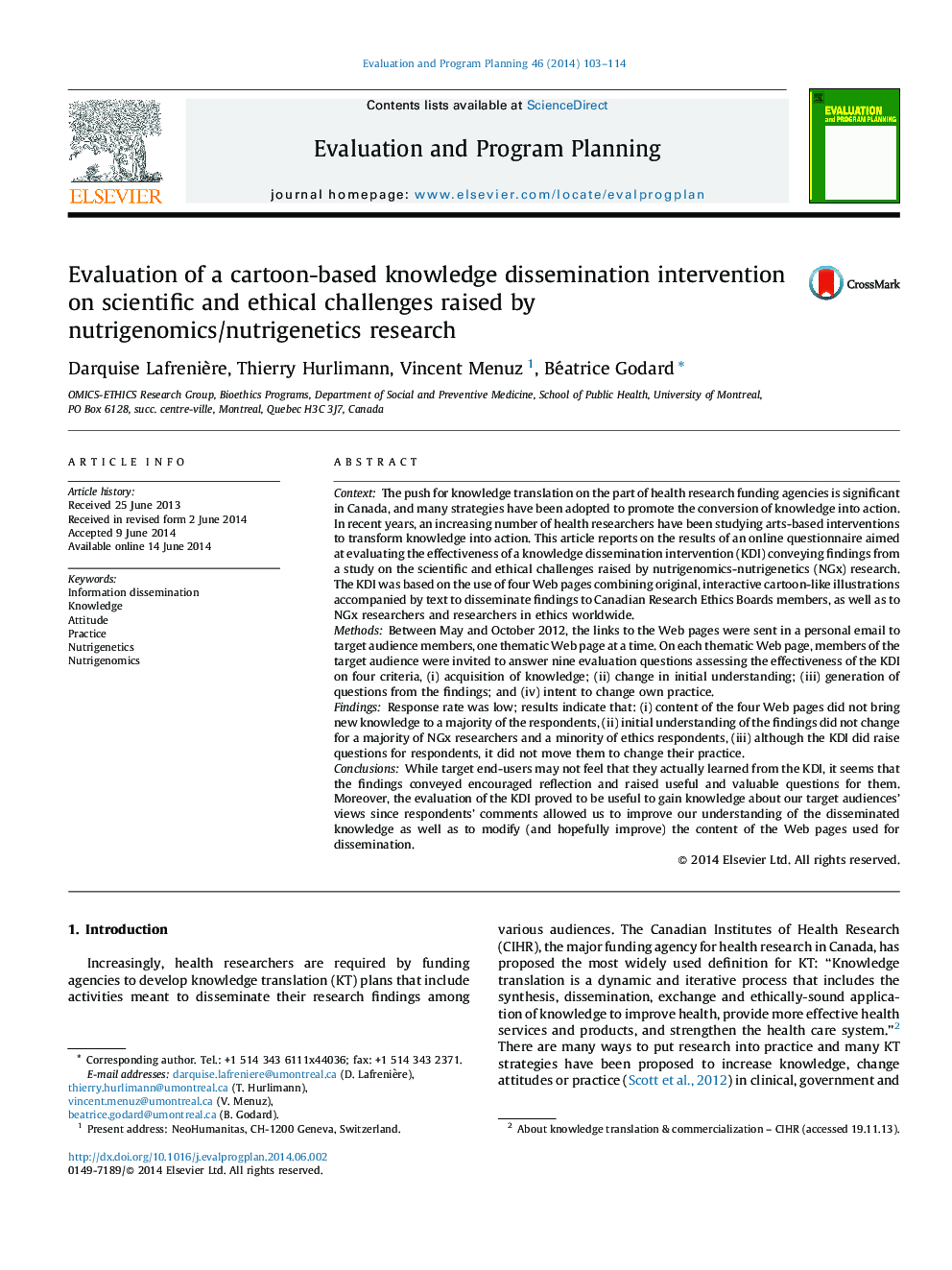| کد مقاله | کد نشریه | سال انتشار | مقاله انگلیسی | نسخه تمام متن |
|---|---|---|---|---|
| 321338 | 539782 | 2014 | 12 صفحه PDF | دانلود رایگان |
• Little guidance is available to disseminate findings with cartoons on the Internet.
• Participation is a challenge in the evaluation of a dissemination intervention.
• Cartoons encourage reflection and raise useful and valuable questions.
• Feedback improves understanding of findings and content of Web pages.
ContextThe push for knowledge translation on the part of health research funding agencies is significant in Canada, and many strategies have been adopted to promote the conversion of knowledge into action. In recent years, an increasing number of health researchers have been studying arts-based interventions to transform knowledge into action. This article reports on the results of an online questionnaire aimed at evaluating the effectiveness of a knowledge dissemination intervention (KDI) conveying findings from a study on the scientific and ethical challenges raised by nutrigenomics-nutrigenetics (NGx) research. The KDI was based on the use of four Web pages combining original, interactive cartoon-like illustrations accompanied by text to disseminate findings to Canadian Research Ethics Boards members, as well as to NGx researchers and researchers in ethics worldwide.MethodsBetween May and October 2012, the links to the Web pages were sent in a personal email to target audience members, one thematic Web page at a time. On each thematic Web page, members of the target audience were invited to answer nine evaluation questions assessing the effectiveness of the KDI on four criteria, (i) acquisition of knowledge; (ii) change in initial understanding; (iii) generation of questions from the findings; and (iv) intent to change own practice.FindingsResponse rate was low; results indicate that: (i) content of the four Web pages did not bring new knowledge to a majority of the respondents, (ii) initial understanding of the findings did not change for a majority of NGx researchers and a minority of ethics respondents, (iii) although the KDI did raise questions for respondents, it did not move them to change their practice.ConclusionsWhile target end-users may not feel that they actually learned from the KDI, it seems that the findings conveyed encouraged reflection and raised useful and valuable questions for them. Moreover, the evaluation of the KDI proved to be useful to gain knowledge about our target audiences’ views since respondents’ comments allowed us to improve our understanding of the disseminated knowledge as well as to modify (and hopefully improve) the content of the Web pages used for dissemination.
Journal: Evaluation and Program Planning - Volume 46, October 2014, Pages 103–114
